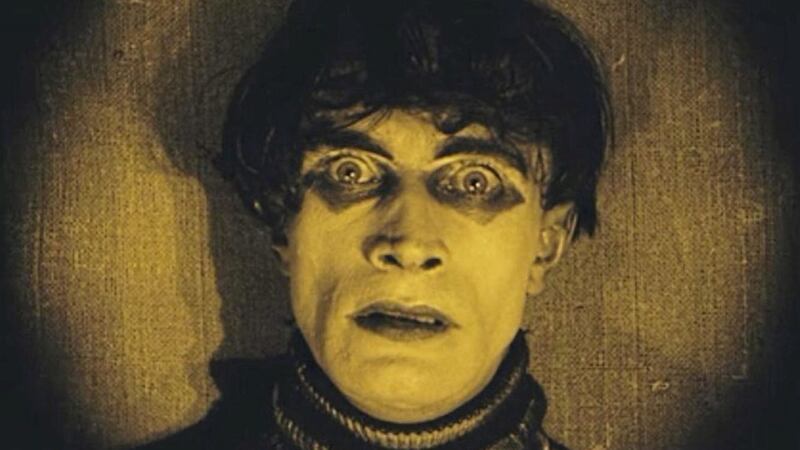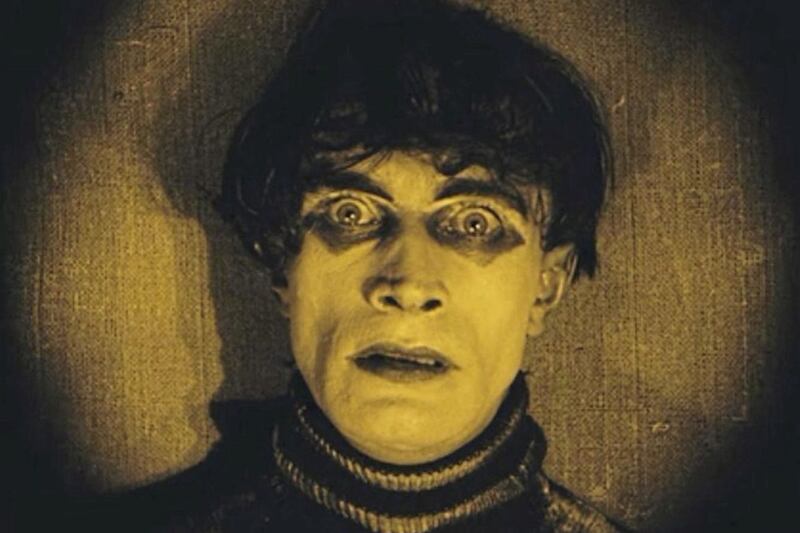THE term 'dreamlike' is an overused one in film criticism. Usually it’s a catch-all term applied to anything that rambles along in a weird and wonderful way, skirting the outer reaches of linear storytelling as it goes.
Das Cabinet des Dr Caligari, director Robert Weine’s 1920 masterpiece of German expressionism, is a genuinely 'dreamlike' film, however. It glides along to its own internal rhythm, unsettling and disorientating as it goes. It is at times illogical but it pulls you in. Like all good dreams, however, it leaves you struggling to remember its meaning almost from the moment it ends. That it’s also more of a nightmare than a dream almost goes without saying.
Split into six meandering acts that leave you unsure if what you’re seeing is all fantasy or a mixture of fact and fiction, it begins with a conversation between two men who are seemingly revisiting their past. Mid-conversation a woman in a white gown approaches them and the action suddenly shifts to a fairground in a small German town. There we see Dr Caligai himself (Werner Krauss) who is showing off a creepy sleepwalking act that goes by the name of Cesare.
The black-clad Cesare (played with a deeply disturbing otherworldly edge by Conrad Veidt) rests in a coffin, only rising from his slumber to tell the future. When two of the watching crowd, Francis (Friedrich Feher) and his friend Alain (Hans Heinz von Twardowski) engage Cesare and Alain asks when he will die, the fortune teller tells him it will happen that night.
Sure enough, Alain is found dead shortly after leaving the fair and, convinced that Dr Caligari is responsible, Francis teams up with another friend, Jane (Lil Dagover) to watch the Dr go about his daily business. When Caligari catches them doing just that he orders Cesare to kill Jane.
Based on stories from Carl Mayer and Hans Janovitz, it’s an astonishingly moody and effective slice of nightmare cinema. The film’s famously jagged, expressionistic sets are stark and unforgettable and would go on to influence everything from Fritz Lang’s Metropolis to just about every mean and moody film noir or Gothic horror made since.
It has a consistent and genuinely offbeat quality that renders it a 'once seen never forgotten' classic and the latest high-definition issue of the film from Eureka Entertainment confirms its significance in the world of cinema, with an extras-packed two-disc Blu-ray SteelBook release that leaves no stone unturned in terms of analysing the movie’s weird and wobbly brilliance.
That some of that analysis pushes things just a little too far (the 2014 documentary From Caligari To Hitler suggests the film's jagged darkness directly inspired the rise of Nazism, for example) is undeniable but this is a true classic that deserves all the respect it gets.
Bleak, bold and boasting a look unlike anything that came before, Das Cabinet des Dr Caligari is a silent cinema thrill ride you won't forget. Your dreams will never be the same again.



